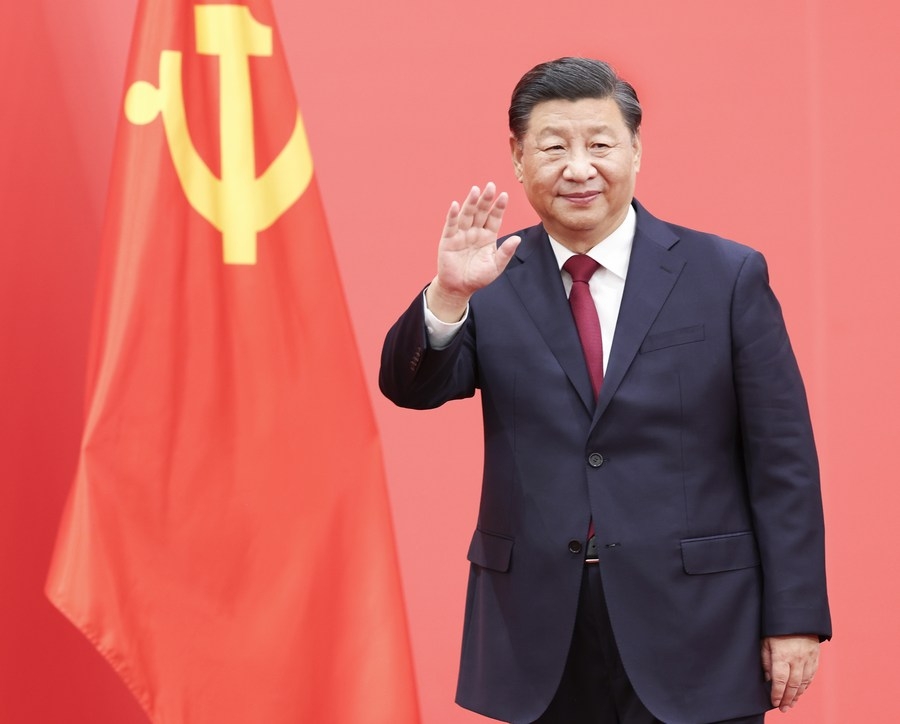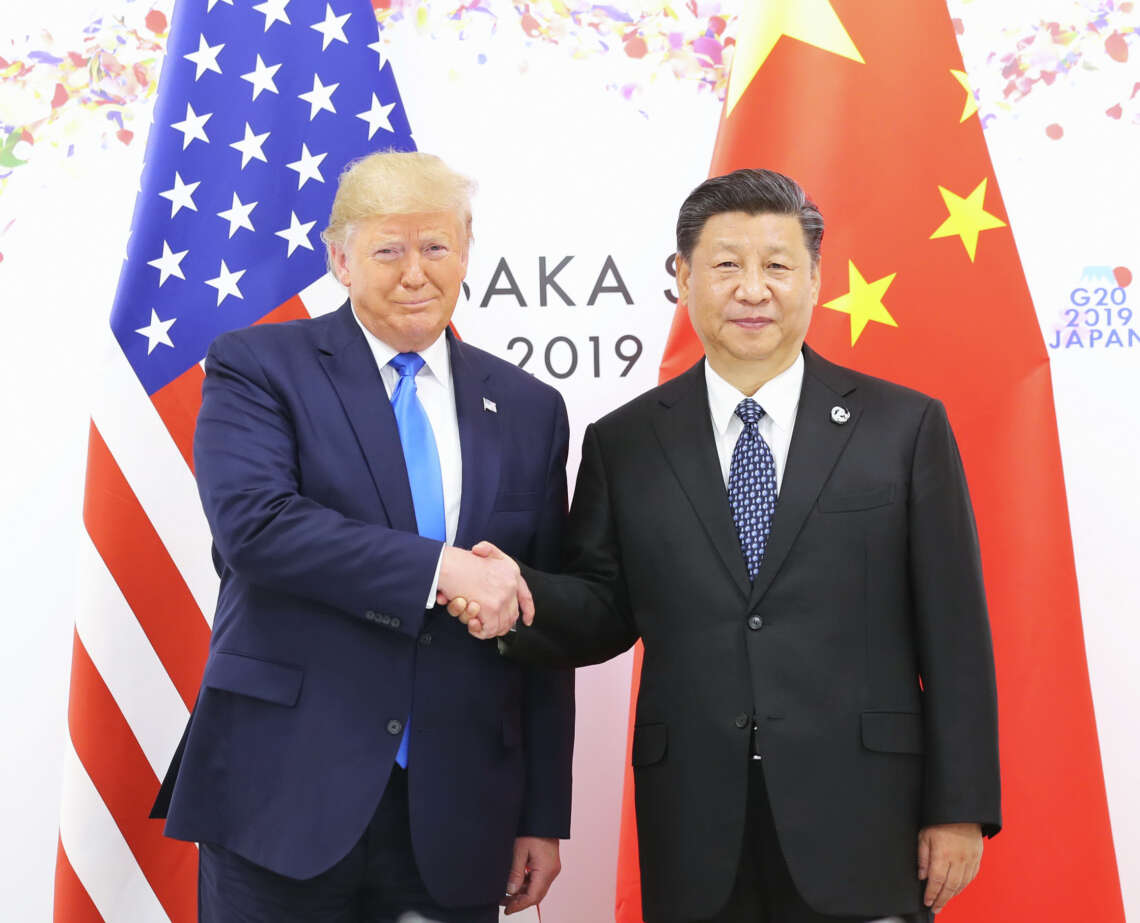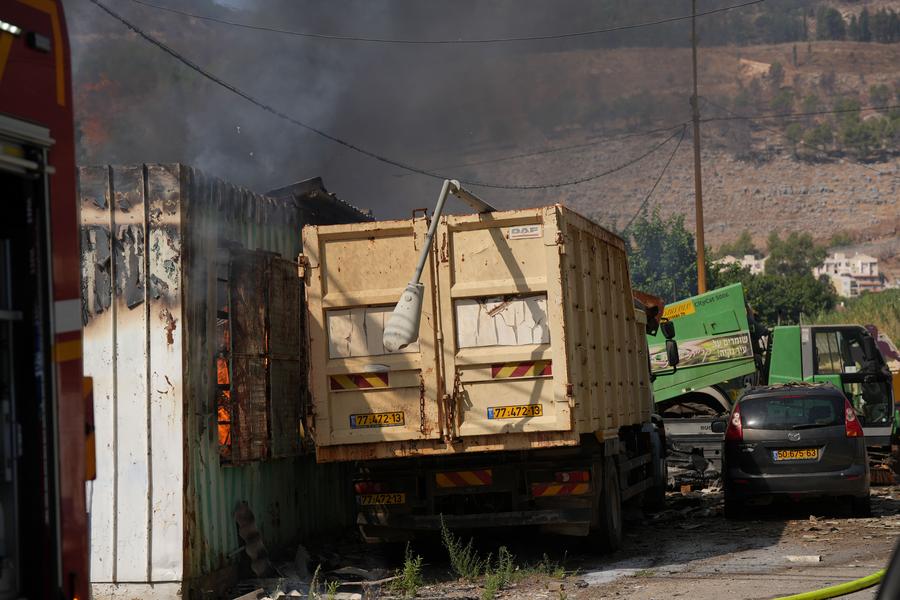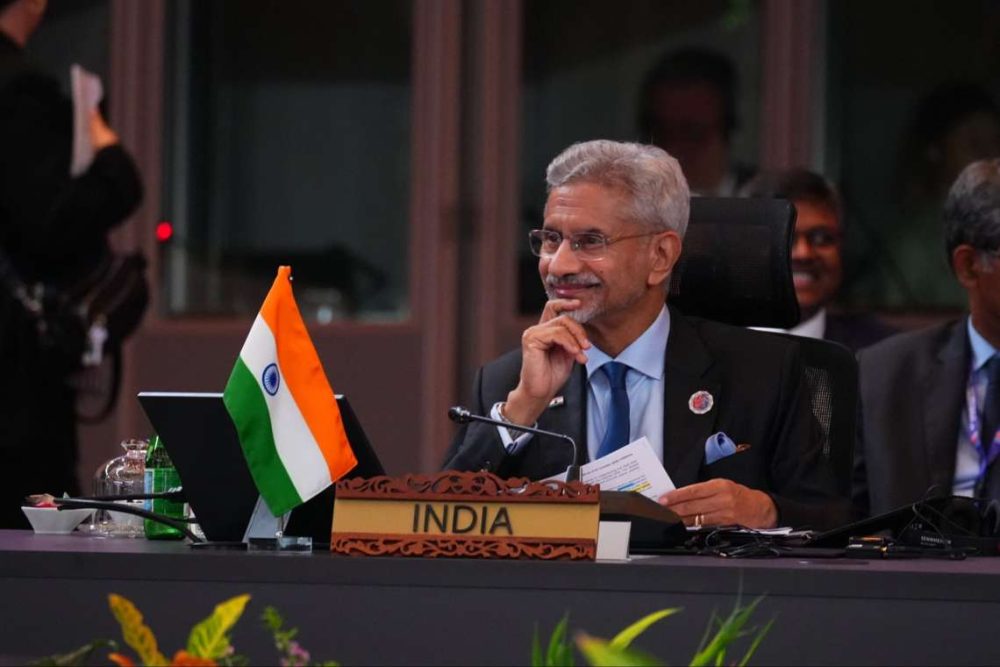China, which has long sought to diminish India’s influence in South Asia, has, for several reasons fuelled anti-India sentiments within the national politics of Bangladesh and other South Asian countries….reports Asian Lite News
The recent political turmoil in Bangladesh has evoked severe discussions on the future of radicalism and national security in South Asia. With political disruptions taking shape in various countries in the region, many have called for addressal of structural issues in order to prevent further destabilisation.
However, the intensity and scope of foreign interference in South Asia has led to various challenges of its own that has threatened regional peace and economic growth.
Upon closer examination, the state of Bangladeshi politics and by extension, the broader South Asian region, reveals the rise of emerging radical elements that have the potential to disrupt regional and global peace. China, which has long sought to diminish India’s influence in South Asia, has, for several reasons fuelled anti-India sentiments within the national politics of Bangladesh and other South Asian countries.
Not only has Beijing aimed to counter balance New Delhi’s traditional influence in the region, thereby reducing India’s strategic advantage, but it has also sought to expand its own role as a regional hegemon and project power beyond its traditional neighbourhood.
These ambitions have become increasingly evident, with China now being the largest exporter of military equipment to Dhaka and granting substantial infrastructure loans to further its influence. As a result, China’s strategic interests in South Asia have taken on a multifaceted approach, particularly through its expanding influence in Bangladesh.
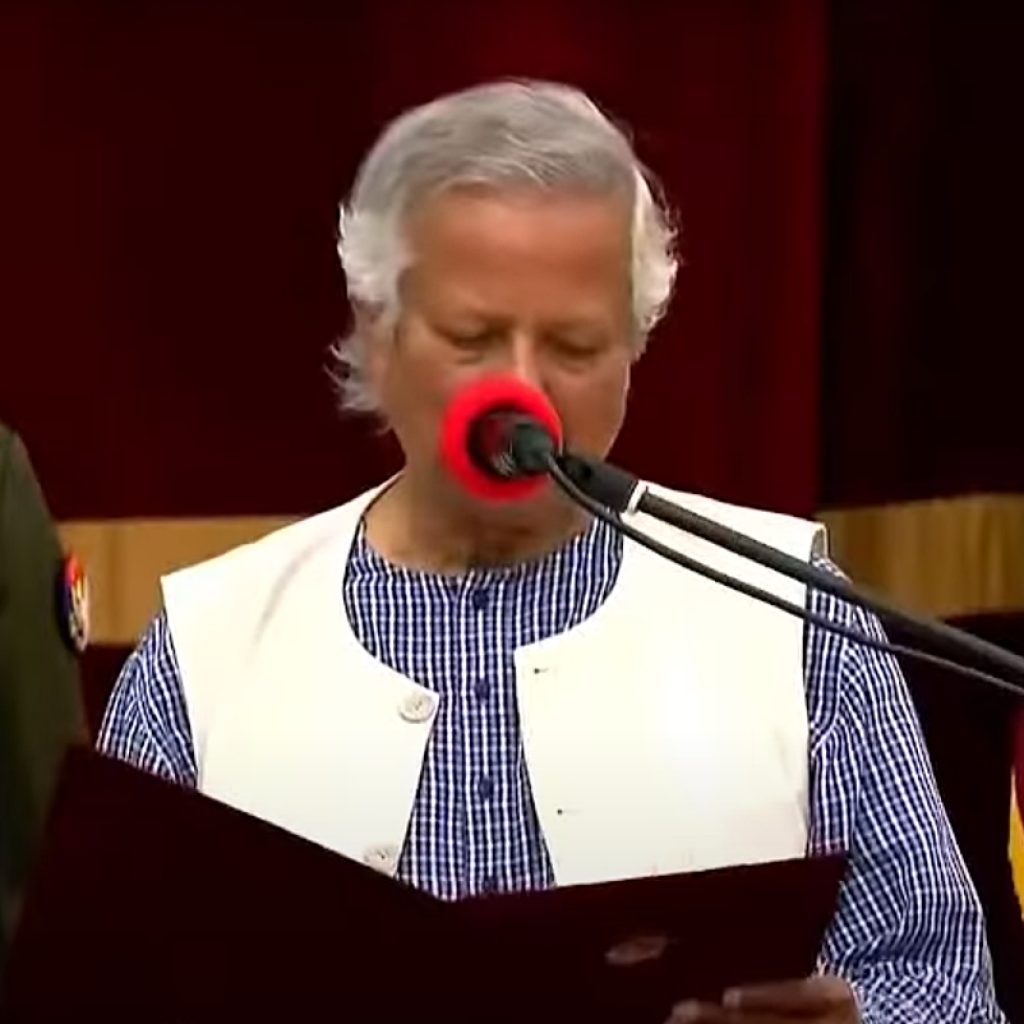
While China asserts itself as a development partner, investing heavily in infrastructure, its interference in Bangladesh seems to be having significant repercussions on regional security, particularly in India and the whole of Southeast Asia’s fight against radicalism.
This dual strategy, on the one hand, cracking down on Muslim populations domestically through re-education camps in Xinjiang, while on the other, indirectly promoting Islamist groups in Bangladesh, raises severe concerns about Beijing’s true intentions as well as the broader security dynamics in South Asia and beyond.
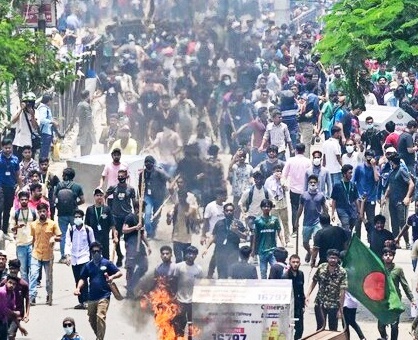
Rising Islamist Radicalism in Bangladesh: A Consequence of China’s Support?
Bangladesh has long been a key partner in India’s regional counterterrorism strategy, particularly in tackling radical Islamist groups like Harkat-ul-Jihad-al-Islami (HuJI), Jamaat-ul-Mujahideen Bangladesh (JMB), and their networks.
However, China’s growing influence in Bangladesh is complicating this area of cooperation that stood the test of time during the previous regime. As China strengthens its economic and military ties with Dhaka, Islamist groups seem to be gaining more freedom, especially since the new government has taken over.
Radical groups such as the Hifazat-e-Islam and Jamaat-e-Islami (JeI) have enjoyed a resurgence, with their ideologies finding safer space to grow, more often than not with indirect protection due to geopolitical gains that Beijing is seeking to make.
These groups have also been known to have historical linkages with global terror outfits like Al-Qaeda (AQ) and ISIS, further complicating the region’s security dynamics. For instance, JeI has long been associated with Islamist extremism, and its alignment with China’s strategic goals indirectly allows them to operate more freely, complicating India’s efforts to curb extremism within its borders with Bangladesh’s assistance.
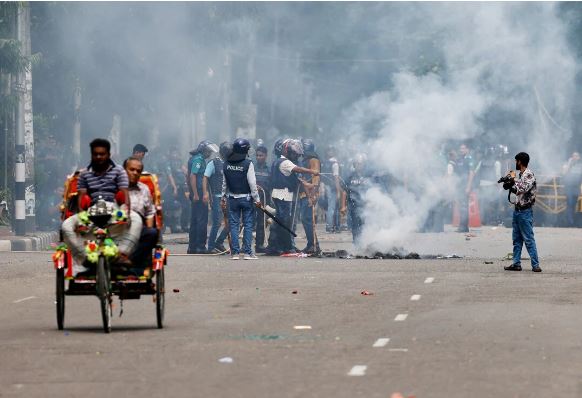
Spreading of Radical Islamist Ideology beyond Bangladesh
The ramifications of unchecked radicalism in Bangladesh also extends beyond South Asia, threatening the security of Southeast Asia as well. Radical Islamist ideologies promoted by groups like JeI and Hifazat-e-Islam, while also being promoted through Chinese intervention, have the potential to spread to countries with significant Muslim populations, such as Malaysia, Indonesia and even Sri Lanka.
These regions, especially Malaysia and Indonesia, have seen an uptick in radical Islamist activities, and Bangladesh is on the path of acting as a new breeding ground for these radical activities. Given the global nature of extremist networks, this spread could deepen regional insecurity and destabilize parts of Southeast Asia, mirroring the trajectory seen in Bangladesh.
Furthermore, Beijing’s support for radical groups that are prone to be Anti-India, has further created opportunities for destabilization in India-Bangladesh ties. As far as India is concerned, its security concerns are rooted in its experience with past Islamist radical groups that had previously operated with impunity from Bangladesh. The HuJI and JMB networks have long had cross-border operations, infiltrating India’s northeastern states and spreading radical ideologies and terrorist activities.
In the 1990s and 2000s, HuJI was notorious for its attacks on Indian soil, including bombings and assassinations, which were partly facilitated by the lack of stringent action from the Bangladeshi government. Similarly, the JMB, responsible for numerous attacks within Bangladesh, has also extended its tentacles into India. Thus, China’s influence in Bangladesh has majorly weakened not only India’s ability to counter these groups effectively but also opened the gates to radical elements spreading to other regions as well.
Among the major warning signals that should guide relevant stakeholders’ strategy is thechilling example of the Holy Artisan Bakery attack in Dhaka, where five gunmen, affiliated with ISIS, killed 22 people, including foreigners.
The attack demonstrated how radicalization in Bangladesh had evolved from local extremism to global jihadism, with links to transnational terror networks like ISIS. Moreover, the radical preacher Zakir Naik, known for his inflammatory speeches and support for extremist ideologies and under scrutiny for inciting the terrorists in the Holy Artisan Bakery attack, has reportedly found safe harbour in Dhaka since the regime change recently. These events must act as wake up calls for Bangladesh’s security establishment before the ramifications turn the tide against Dhaka’s favour.

China’s Contradictory Approach: Re-Education Camps in Xinjiang vs. Promotion of Radicalism in Bangladesh
Perhaps the most perplexing aspect of China’s strategy is its contradictory approach to Islam. While China implements draconian measures in Xinjiang, such as re-education camps aimed at erasing Uighur Muslim identity, it appears to be indirectly promoting Islamist elements in Bangladesh by aligning with an Islamist government. This dual policy of suppressing Islam at home while fostering relationships with radical elements abroad, serves China’s larger geopolitical aims, but at the cost of regional security as well as revealing its true intensions of promoting a healthy environment for radicals in Bangladesh and beyond.
By allowing Islamist radicals to flourish in Bangladesh, China aims to weaken India’s as well as Southeast Asia’s counterterrorism efforts and create a potential proxy through which it can influence regional dynamics. Beijing’s long-term strategic interest in diminishing India’s influence in South Asia clearly involves turning a blind eye to the rise of radical Islamist groups in Bangladesh, even though this threatens regional security and stability.
Hence,the broader implications of China’s Bangladesh strategy are alarming for South Asia’s security landscape. By aligning with an Islamist-leaning government and allowing groups with radical tendencies to operate freely, China is creating a situation that can spiral out of control later, if not sooner. This not only undermines India’s fight against radicalism but also risks the spread of extremist ideologies across the region.
China’s involvement thus has the potential to influence Bangladesh’s internal political landscape. With Chinese support, certain political factions have been emboldened, leaving an impression that radical elements will be tolerated in Dhaka under the guidance of Beijing. This is also particularly relevant for India, since groups with extremist leanings are already aligning with anti-India rhetoric, using Chinese backing as a shield against Indian influence.
Therefore, as Dhaka becomes more reliant on Chinese investments and military aid, its foreign policy must find greater autonomy in decision making as compared to the shift from India’s security concerns it is currently undergoing. A weakened bilateral relationship would adversely affect both India and Bangladesh’s abilities to coordinate on security matters, including the fight against radicalism in both the countries.
In a worst-case scenario, Bangladesh might feel less inclined to crack down on groups that operate in both countries, potentially using radicals as leverage in regional diplomacy. However, this strategy is at the same time going to have long term effects on Dhaka’s own growth and internal security trajectories. Thus, instead of settling in for pity geopolitical interests, it is important for Dhaka to unmask the strategies Beijing is conveniently deploying for its own geopolitical gains. By contrasting China’s inroads into Dhaka’s domestic, regional and geopolitical interests, the Bangladeshi interim government will do well to safeguard the future of its country as well as its people.
ALSO READ: China labels Quad a US containment tool
ALSO READ: Growing Frustration in China Over Pakistan’s Duplicity on Counterterrorism Assurances


